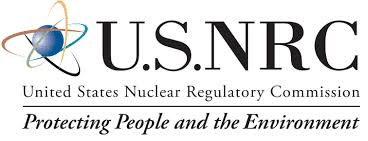
The U.S. Nuclear Regulatory Commission wanted to improve the efficiency of dozens of agency processes. To do so, they needed to tightly integrate data, content, and processes across multiple key data systems. They chose the Intellective Unity Suite paired with IBM Content and Case Manager to achieve their challenging goals.
The mission of the U.S. Nuclear Regulatory Commission (NRC) is to license and regulate the United States’ civilian use of nuclear reactors, fissionable materials, and waste in order to protect public health, safety, and the environment, and to promote the common defense and security.
The NRC oversees 104 domestic nuclear power plants and 22,500 licenses for the use of nuclear materials. For the NRC, communication and transparency are crucial to their operations and to maintaining the public trust.
However, they were faced with outdated systems for creating, tracking, storing, and publishing documents and data regarding agency activities. Items relating to agency meetings, voting, facility reviews, and licensee performance had no centralized repository or effective method of public disclosure.
The NRC utilized Intellective Unity and IBM Case Manager for centralized management of content, data, and related processes. These products allow the agency to develop and deploy new cutting edge solutions quickly and effectively for a wide variety of complex needs.
As a result the NRC has achieved a centralized, secure, and effective method of storing and disseminating data throughout the agency and to the public. The NRC has also quickly and effectively deployed a wide range of process solutions dramatically increasing efficiency and productivity agency-wide.
The NRC quickly leveraged Intellective Unity’s ability to seamlessly aggregate data and content into intuitive contextual user interfaces to develop, test, and deploy multiple business solutions. With the help of the Intellective team, a rigorous proven methodology, and best of breed technology, the agency has streamlined or automated dozens of mission critical processes.
The NRC has implemented the following solutions:
• Consolidated multiple legacy Content platforms and Libraries to a single IBM Content Library
• Migrated public libraries and public web interfaces to Intellective
Unity as a standard portal
• Deployed a new secure process for evaluation and
disclosure of data to the public leveraging
• Automated dozens of Agency processes including:
- Public Meetings
- Commission Voting
- Public Notifications
- Public Disclosures
- Task Assignments
- Lessons Learned
- Regulation Publishing
- FOIA
- Facility Change Reviews
- Concurrence
- Operator Licensing (ODD)
- Correspondence Tracking
• Used IBM Content Analytics and Enterprise for Discovery for Freedom of Information Act requests
Outlined below are five of numerous solutions currently utilizing Intellective Unity and IBM FileNet at the NRC:
Agency Lessons Learned Tracking System (ALLTS)
ALLTS is a tool used to track and analyze significant deficiencies identified during both internal and external agency reviews and ensure that there is a formal and rigorous process to correct deficiencies and prevent recurrence.
Through ALLTS, documents are stored in one location, cases are tracked through completion with the Case Management system, and users can search for and work with case information depending on their level of access.
Public Meeting Notice System
The Public Meeting Notice System enables the NRC Program Offices to issue, track and modify public hearing notices. In addition, this application automates the gathering, approval and posting of all related meeting documentation to the public website. Replacing a very manual and inefficient process, this solution, leveraging the Intellective Unity enhanced user interface, empowers NRC Program Office personnel to easily setup and manage public meetings as well as post Meeting information to the public website.
Secretary Tracking and Reporting System (STAR)
The Office of the Secretary is responsible for creating, assigning, monitoring, and managing tasks and actions across the NRC. The tasks are assigned to various commissioners who may assign sub-tasks to complete the action within their respective areas. STAR automates the assignment, tracking, review, processing and completion of these actions and provides for the management of documents in the context of each action. In addition, as many of the actions require voting by the commissioners, STAR provides for the review of upcoming votes, vote processing, and disposition.
STAR leverages Intellective Unity for its powerful user interface as well as the ability to bring all documents together as part of a task or case. The system provides the ability for users to search for actions and documents and associate new documents with a task.
In addition, STAR supports and tracks user comments on both cases and documents, as well as maintains a full audit history of all actions taken on the task or action.
NUREG Application
One of the many mandates that the NRC must manage results from the 1974 Energy Reorganization Act which requires the tracking and documentation of all generic technical issues related to public health and safety, the common defense and security, and the environment. The the United States Congress oversees this mandate.
In order to carry out this mandate, the NRC utilizes IBM Case Manager and Intellective Unity to support the necessary tracking for the creation and modification of the identified technical issues. This solution also provides for the automatic generation of the Official Agency Records (OARs) used by operators of nuclear facilities and the automatic publication of issues to the public website.
STAR Mobile Meetings
Many times, the NRC commissioners are out of the office and need to have ready access to tasks and related documentation. Using their mobile devices, NRC commissioners can securely access important task information and documentation from anywhere. This makes it possible for them to prepare for and attend meetings that may be held outside of an NRC office or to have critical information readily available on their mobile device as they visit nuclear sites.
